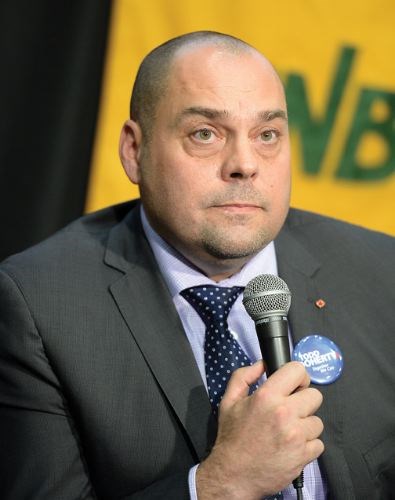Though the House of Commons only sat for two weeks following the October election, new Cariboo-Prince George MP Todd Doherty already has three pieces of legislation introduced in Ottawa.
"When we got there we wanted to hit the ground running. I had a regional analysis in one hand and my CV in the other and I was knocking on doors, letting people know about the Cariboo-Prince George region," said Doherty.
After hiring an experienced team in Ottawa, one of the first things he said he wanted to do was get his name in for private member's bills.
Of the three that were introduced for first reading on Dec. 10, two have been brought to the floor before in the previous Parliament.
Bill C-208, would clarify the interpretation of numerical dates in the Canada Evidence Act so that they'd be read as year/month/day if there were any dispute during a legal proceeding.
The other bill that had already been introduced in the past, Bill C-209, would add language to the Corrections and Conditional Release Act so that high-profile offenders, specifically those who commit specific crimes as laid out in the act, would have their names, pictures and terms of release made public.
"Obviously it doesn't interfere with the rights of the inmate being released, but it is making sure we give the communities and victims of crime more information and knowledge about certain individuals that they're being relocated into our community," said Doherty. "The biggest part for us is making sure that our victims are not revictimized - that they've got rights and we're standing up for the rights of the victims."
Among the crimes specified in the act include those relating to terrorism, child pornography, sexual exploitation, arson and manslaughter.
Ultimately, not having these offenders back in the community would be a worthwhile discussion, said Doherty.
"I think the biggest part is giving the public and victims knowledge so that certain individuals are not able to quietly enter the community and possibly re-offend," he said.
A new piece of legislation Doherty is sponsoring is C-207, which calls for the creation of a national day of appreciation for military personnel and first responders.
The day, singled out for March 3, wouldn't be a holiday, but another opportunity for Canadians to recognize the people that run towards danger instead of away from it, said Doherty.
"We have people that put their lives in jeopardy every day to make sure our communities and you and I are safe, that we can sleep well in our homes and feel safe that there are those that are looking out, the silent sentinels, so to speak," he said.
Though March 3 happened to be the date of the Mayerthorpe, Alta., fatal shooting of four police officers, Doherty said there was no real link between the calendar and the proposed significance.
"It's a date that as we were doing our work and putting our paperwork together, there was nothing really that we knew of (that was already) on that day," Doherty said. "If it's not March 3, it should be every day."
Doherty said he has another bill waiting for introduction when the House resumes in January and hopes to get it on the floor within the first couple of weeks.



.png;w=120;h=80;mode=crop)